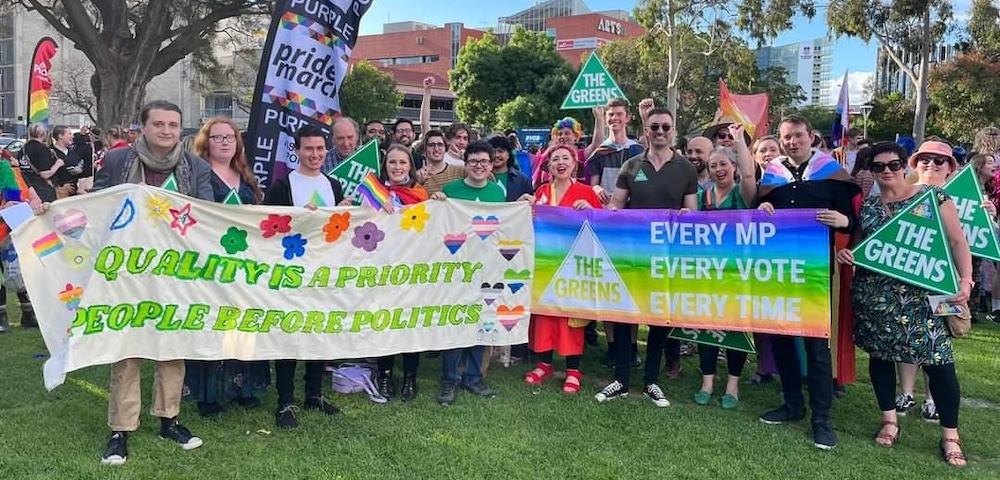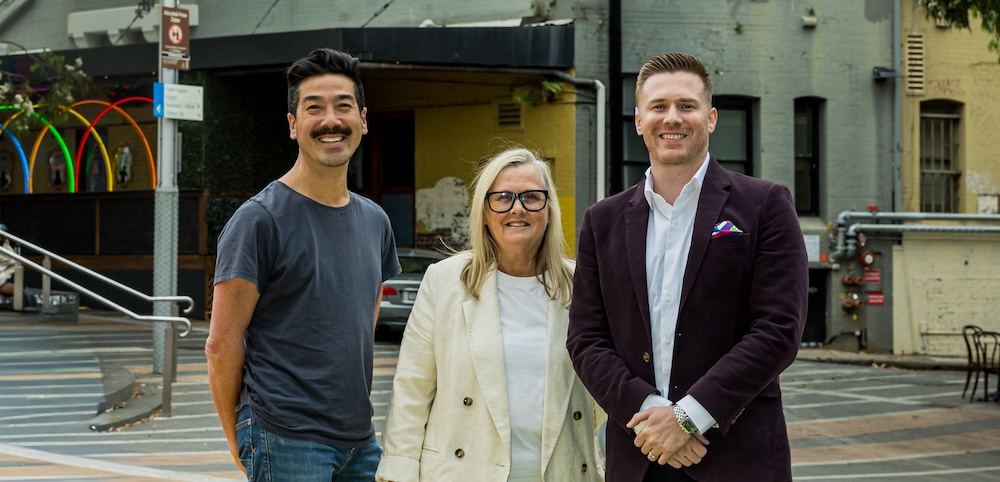
84% Drop In Casual Sex Improves HIV Outcomes?

Gay and bisexual men in Australia adhering to COVID-19 social distancing restrictions are having less casual sex, which is offering hope for a reduction in new HIV and sexually transmitted infections.
New research published in the Journal of AIDS (JAIDS) by the University of New South Wales’ Kirby Institute reveals a steep 84% drop in casual sex had by gay and bisexual men in Australia since the start of the pandemic and introduction of physical distancing measures in the country from March 2020.
In April around 940 participants in an ongoing study were asked questions about changes in their sexual behaviours during the COVID-19 pandemic. The participants are part of the Kirby Institute’s Flux Study – a network of over 3,000 gay and bisexual men who have been surveyed since 2014 about their sexul and drug use behaviours.
The men were asked questions about whether they had engaged in casual sex outside of a committed relationship in the six months prior to becoming concerned about COVID-19 and if they had continued to do so since then.
The mean age of the men surveyed was 39.9 years and around 88.3% had reported sex with other men during the six months before COVID-19. Of the 587 men who had reported sex with casual partrners before COVID-19, only 93 or 15.8% continued to do so during the pandemic. Over 84% had reported that they did not engage in casual sex during the pandemic.
“The results from our study show that an overwhelming majority of gay and bisexual men have adapted their behaviour and are adhering to physical distancing guidelines in light of the COVID-19 pandemic,” Dr Mohamed A. Hammoud, the lead author on the paper, said in a statement.
“Gay and bisexual men have adjusted their prevention strategies throughout the HIV epidemic to protect themselves and each other. Our community has a long history of creating innovative strategies to reduce risk, and we are seeing this continue with this new health challenge.”
The study says that the behavioural changes could result in short term reduction in new HIV and STI cases. “If sexual health screenings are undertaken prior to resuming sexual activity, this could present a novel opportunity to interrupt chains of HIV and STI transmission,” the study concludes.
While COVID-19 is not a sexually transmitted infection, LGBTQI organisations in their advice issued at the start of the pandemic have told the community that physical intimacy did carry a risk of infection. The recommendations for engaging in casual sex has been – “Don’t!”
To see that the community has adopted risk reduction measures is welcome news, while also offering hope that there would be a reduction in new HIV and STI diagnoses.
“With gay and bisexual men having less casual sex because they are heeding public health advice around social distancing, it is likely that there will be a drop in HIV and STI rates in NSW in the short term,” ACON CEO Nicolas Parkhill told Star Observer.
New South Wales has eased the restrictions to a large measure and allowed reopening of bars, restaurants and sex on premises venues, as long as they have safety measures in place.
“As physical distancing restrictions ease, it is important that gay and bisexual men continue maintaining good sexual health by getting tested for HIV and STIs often and using HIV prevention strategies that works for them and their partners,” reminded Parkhill.
However, there is also caution advised to see how the impact of COVID-19 pans out in the long term.
“The Flux findings demonstrate that many gay and bisexual men have put casual sex on hold to prevent COVID-19. It’s very likely we’ll see HIV and STI notifications drop this year, but it remains to be seen what the impact will be in the long term, especially when you consider that many are taking a break from PrEP under the circumstances. How we’ve responded to COVID-19 to date is one thing, but how we come out of this pandemic will be just as important,” said Simon Ruth, CEO Thorne Harbour Health.
Ruth pointed out that the study could also help community organisations to respond to “the potential changes in their mental health, alcohol and drug use, as well as HIV and STI notifications.
The researchers said they are also analysing the social and mental health impact of the pandemic and social distancing restrictions. “Future work will also need to consider appropriately targeted policy responses and harm reduction interventions as people return to a ‘new normal’ following the easing of restrictions, or adjust to the ongoing impact of COVID-19 on people’s sexual behaviour,” the study said.
The paper can be accessed here.









